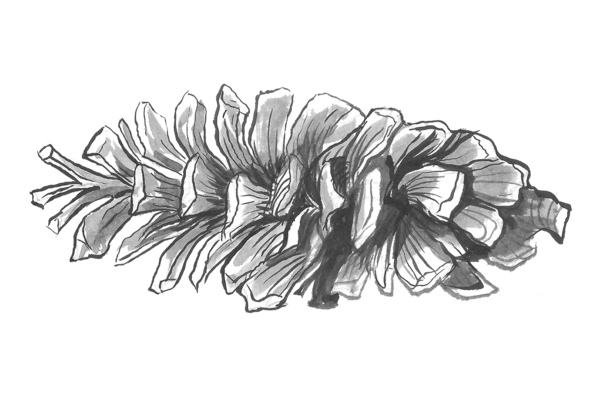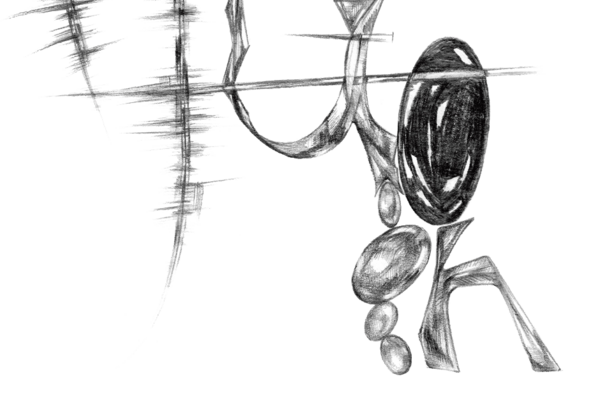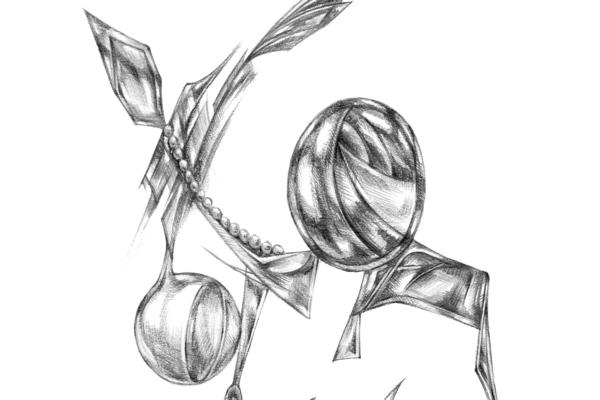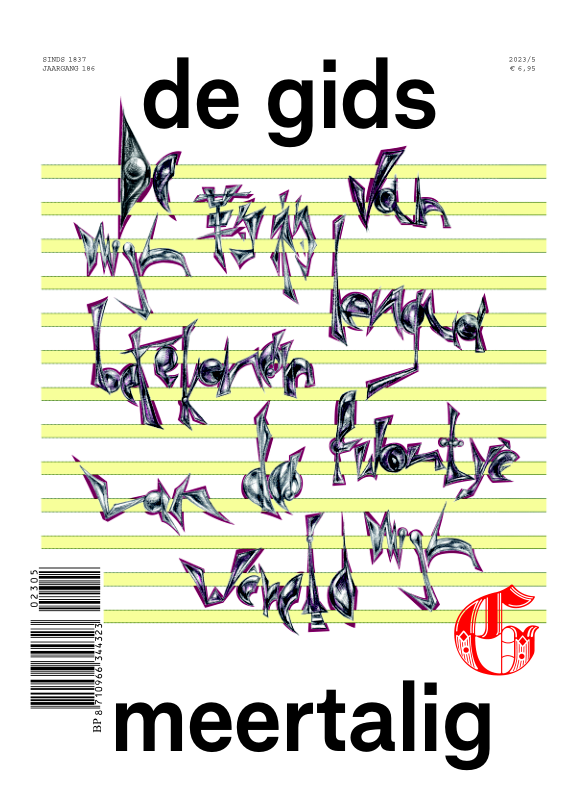Redactioneel
Walk to school with
the other gaanv children.
Keep some distance from them.
If you accidentally
touch their dabba
they might consider it polluted
and throw it away.
Rather than let food
go to waste, pick it up.
Kha.
Their food might be much richer
and more delicious
than anything
your family has the time or
luxury to prepare.
Start bumping into your mitra
by ‘accident’.
Soon, they might catch on
and no longer allow you
to accompany them
to school.
In time, more untouchable children
might join school.
Sarva ekatra chala.
Dislodge ambe, bor,
and other fruits from trees
with well-aimed rocks.
Drink water
from creeks and nadya.
If you discover mashe and khekde,
roast your catch over a crude fire.
When you remember school, run for it.
The written word, cookbooks, and access to ample food resources are sites of embedded caste violence in India, and Dalit literature is often the only space of holding records and collecting evidence of these experiences. Dalit people are at the bottom rung of the caste system, deemed impure and untouchable by those above us. For thousands of years, our mobility (in every sense of the word) has been strictly controlled – our occupations, our eating habits, who we marry, and what we study. Access to literacy and entry into school is a fairly recent phenomenon for my community, and it is considered by many, including my family, to be the only way to have a voice and make our way out of caste oppression.
For this reason, I am very interested in Dalit literature and the themes that many first-generation Dalit writers like Namdeo Nimgade – one of the first Dalit people in India to pursue a PhD – delve into. Much of my work and writing emerges from this literature, and involves picking extracts that discuss food (or in Nimgade’s case, the ingenious ways to satiate his hunger), and converting these words into second-person accounts, breaking them down to resemble something between recipe instructions and poetry.
Recipe adapted from Namdeo Nimgade’s memoir In the Tiger’s Shadow (2011)
Essay
Moedertaal

Poëzie
fragmenten van een onvolledig alfabet

Essay
Toch zwaaide het naar me
Poëzie
spot that scar
Poëzie
Dysforie diaspora mij dysforie. II
Poëzie
Gedicht over een van mijn tantes (niet bloedverwant maar in de genealogie van zwarte vrouwenstemmen)
Poëzie
twee gedichten
Essay
Wat een vreemd taaltje

Poëzie
krûpruimte
Poëzie
Un .done
Poëzie
POLITE EXPLOIT
Verhaal
Joules
Poëzie
gedicht
Poëzie
gedicht
Verhaal
Enquête Contagious Speech
Poëzie
Nachtschatten
Poëzie
Intermezzo
Essay
Voor wie wil ik heten?

Poëzie
*gel-
Essay
Bloed, taal, bodem

Poëzie
àlejò
Verhaal
De stilte van het bos
Essay
Close Reading VIII: ‘waanloos en windstil wakker’ van Rozalie Hirs
Brieven
Briefwisseling Maria Barnas & Niña Weijers
Podcast
